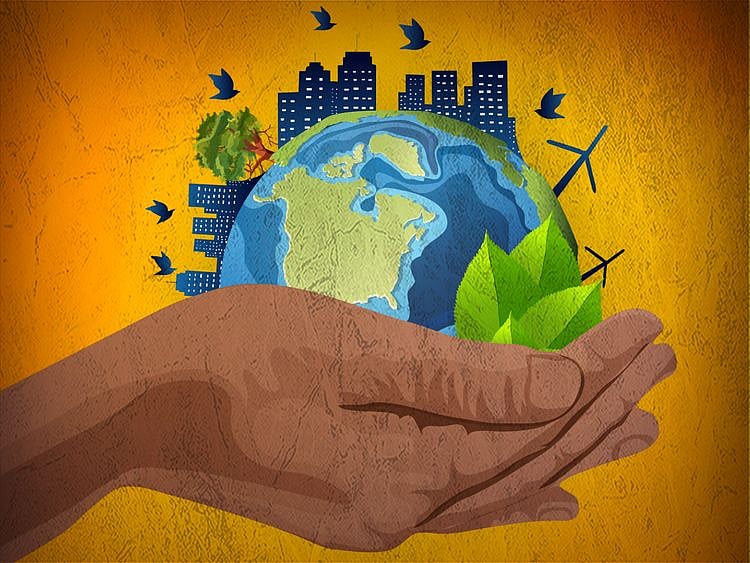Quantum computing will soon come up with more real-world uses – climate change, for one
How about finding a cure for the next pandemic in one week?

We often understand exponential growth in theoretical terms - but struggle to really see its impact in practice.
For example, most people would be shocked to learn that a piece of paper would only need to be folded 42 times for it to be thick enough to get from the Earth to the Moon. Many more would refuse outright to believe it could be true. But that’s how quickly exponential doubling scales.
We see this sort of development today with AI. ChatGPT and similar programs are making astonishing leaps in tech progress – but are in fact the latest iteration of ongoing developments that will evolve more rapidly than we can scarcely imagine.
The same is true of quantum computing. These are machines that use subatomic particles - electrons or photons - in the form of qubits, to allow these particles to exist in more than one state at the same time, unlike classical computers which can only ever be binary – one or zero. This makes them dramatically more powerful, and the addition of more qubits yields exponential performance gains unlike the growth in conventional computers processing power, which can only ever be linear.
To give an example of these gains in practice, Google claimed quantum supremacy in 2019, when its 53-qubit machine completed a task in 200 seconds that would take a classical supercomputer 10,000 years to perform. Last year IBM unveiled a 433-qubit processor and says it is on track to reach 1,000 qubits this year, as do several other companies.
Real-world outcomes
Although I would caution that there is still a lot of hype within the field, as well as important steps needed to reduce errors and improve the stability of quantum computers, the bottom-line is that quantum computers are improving more quickly than we hoped, and within the next decade will transform the world thanks to their computational power.
We can imagine a future where the computational power of quantum computing transforms fields including security, finance, drug design, machine learning, AI, big data search, and digital manufacturing.
To give just one example, imagine a future where a vaccine for the next pandemic could be developed in one week instead of a year.
The biggest area where quantum computing could help, however, is in solving our greatest challenge - climate change and the need for a more sustainable future. Quantum computers have the potential to significantly aid our efforts by addressing complex problems and offering new solutions in multiple fields.
These are all areas where massive processing power could lead to profound discoveries.
Computing for good
I have always believed that technology can aid society. That’s why we at NYU Abu Dhabi founded the NYUAD International Hackathon for Social Good 11 years ago to help turn theory into application.
And we are excited that this year’s hackathon will focus on the use of quantum computing to build solutions to problems related specifically to the UN Sustainable Development Goals (SDGs).
We have used the Hackathon to create a framework, along with our partners in industry, academia, including Microsoft, Google, the Geneva Science and Diplomacy Anticipator (GESDA), and the UN, to offer participating students a chance to be part of a broader community focused on real-world outcomes.
Using cutting-edge quantum technology, they can be guided along a path that helps them change our world for the better.
This is what truly excites me about the future. True progress has never been about the development of a particular piece of hardware or software. It is always about the people who use that technology in new, and inventive ways, and have the support to take their idea all the way to the finish-line.
This, like the folding piece of paper, leads to outcomes that we can scarcely imagine to be true. And with the right support, I believe this next generation of developers can astonish us all with their inventiveness.
Network Links
GN StoreDownload our app
© Al Nisr Publishing LLC 2026. All rights reserved.